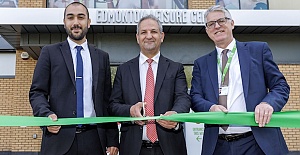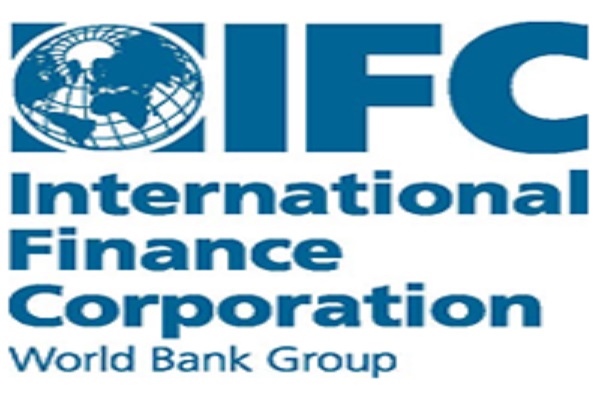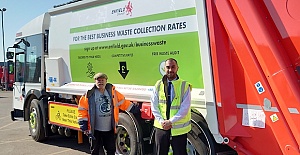Climate change is an increasing concern for businesses worldwide, and especially in Turkey, where water scarcity is a growing challenge. But knowing what to do about it can be daunting, especially for small and medium-sized firms, according to ground-breaking research funded by the European Bank for Research and Development (EBRD) and International Finance Corporation (IFC).
Their new report, Pilot Climate Change Adaptation Study: Turkey, lays out a series of priority actions for Turkish businesses. The study aims to help companies manage the risks and opportunities associated with climate change, making it possible for them to identify measures that make business sense and to prepare for the changes ahead.
“The private sector in Turkey will need to be more climate-resilient, and with this research it can prepare for climate change in ways that also make good business sense,” said Stephanie Miller, Director of Climate Business at IFC, a member of the World Bank Group.
“There are significant opportunities for Turkish businesses to invest in climate-resilient technologies and practices, which can also generate a good return on investment,” said Craig Davies, Senior Manager for Climate Change Adaptation at the EBRD. “We are also engaging with other international agencies and financial institutions in Turkey to further strengthen the country´s climate resilience frameworks and develop new financing mechanisms.”
The report, undertaken in conjunction with the Union of Chambers and Commodity Exchanges of Turkey (TOBB) and the Ministry of Environment and Urbanization (MoEU), describes water scarcity as an increasing risk for Turkey due to climate change and its impact on precipitation, including more frequent droughts and hot spells.
“We are pleased to participate in this study that highlights the role of the private sector in addressing Turkey’s climate change challenges,” commented Gürcan Seçgel, Chief of Climate Change Division, Ministry of Environment and Urbanization.
“Businesses in Turkey welcome the practical information and recommendations on how to manage climate change impact and leverage new commercial opportunities,“ said Rifat Hisarcıklıoğlu, President of the Union of Chambers and Commodity Exchanges of Turkey
45 per cent of Turkish businesses surveyed said they had been significantly affected by a climate-related event in the last three years. Most businesses contacted by the researchers said they lacked information about how to identify and implement concrete actions to prepare for a changing climate.
To address this, the IFC and EBRD study identified and prioritised specific, market-based tools and steps to improve water efficiency, such as drip irrigation and drought-resistant seeds for agriculture, with a potential return on investment of up to 64 per cent. Improved process efficiency, recycling and water re-use can provide potential returns of up to 30 per cent in the agri-processing, manufacturing or municipal sectors. Climate-smart solutions for buildings, such as heat-reflective glazing, rainwater harvesting, surface water drainage and improved ventilation can also have significant impacts with manageable upfront costs.


 Margaret Greer has been sworn in as the new Mayor of Enfield
Margaret Greer has been sworn in as the new Mayor of Enfield Prime Minister Keir Starmer's 2025 Easter message
Prime Minister Keir Starmer's 2025 Easter message After Nesil Caliskan a by-election will be held in Jubilee ward in Enfield
After Nesil Caliskan a by-election will be held in Jubilee ward in Enfield Publishing the analysis, Labour’s Cllr Ergin Erbil said Everybody in Enfield deserves basic rights
Publishing the analysis, Labour’s Cllr Ergin Erbil said Everybody in Enfield deserves basic rights Great respect for Ataturk and enthusiastic youth celebration in England
Great respect for Ataturk and enthusiastic youth celebration in England UK AMBASSADOR TO TURKEY VISITS FETHIYE
UK AMBASSADOR TO TURKEY VISITS FETHIYE Journalists from Europe held the Turkish Media Workshop in Skopje
Journalists from Europe held the Turkish Media Workshop in Skopje The European Union called on Turkey to uphold democratic values
The European Union called on Turkey to uphold democratic values Fenerbahce is the EuroLeague champion
Fenerbahce is the EuroLeague champion Brennan Johnson’s first-half strike seals London side’s win
Brennan Johnson’s first-half strike seals London side’s win The 'Prince of Paris' has impressed in his first EuroLeague season
The 'Prince of Paris' has impressed in his first EuroLeague season Saran Media And Euroleague Basketball Extend Media Rights Partnership for Four More Years
Saran Media And Euroleague Basketball Extend Media Rights Partnership for Four More Years UK, EU reach landmark agreement on food, fishing ahead of London summit
UK, EU reach landmark agreement on food, fishing ahead of London summit Perry Scott to become Enfield Council Chief Executive
Perry Scott to become Enfield Council Chief Executive Residents welcomed back to Edmonton Leisure Centre
Residents welcomed back to Edmonton Leisure Centre Barclays has become the biggest UK lender so far to cut mortgage rates
Barclays has become the biggest UK lender so far to cut mortgage rates















